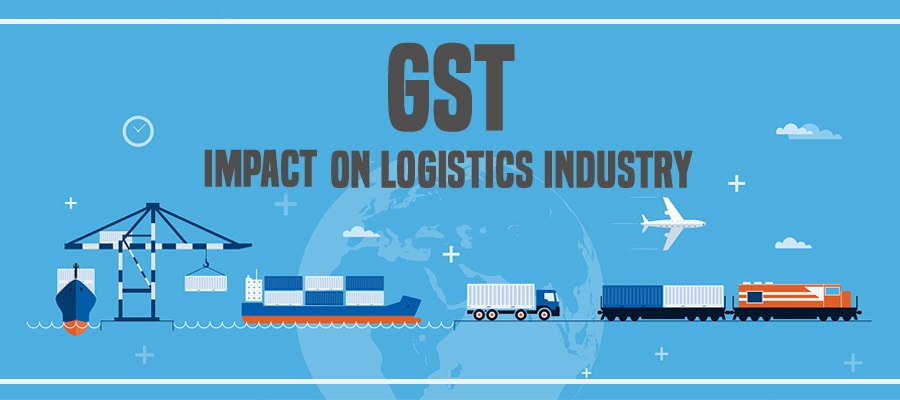The logistics industry in India was estimated to be worth USD 130 billion and has been growing at a steady rate. While the logistics sector could be among the primary bottlenecks in driving economic growth, it will also act as a catalyst to realizing India’s manufacturing and ecommerce dream for the coming decade.
Logistics companies in India have evolved over the years from being mere first-party logistics providers (1PL) to second-party logistics providers (2PL) to integrated fourth-party logistics providers (4PL) by providing a complete package of logistics services, including transportation, warehousing, pool distribution, management consulting, logistics optimization, last mile delivery etc and complementing them with advanced supply chain facilities. Alongside, the government has made considerable inroads into ensuring a favorable business climate. In one such initiative, the government has proposed to implement the Goods and Services Tax (GST), which promises to integrate India’s multi-layered indirect tax system into a single unified one, unshackling India from its bureaucratic web and improving the ease of doing business. “The changes in the proposed indirect tax system could reduce transportation cycle times, enhance supply chain decisions, lead to consolidation of warehouses, etc. which could help the logistics industry reach its potential in terms of matching high quality service levels and growth”, said Arvind Biyani, Director of SkyKing
In this article, we look at the various aspects of the courier/ecommerce industry that may be affected by GST and how industry dynamics are likely to change once GST is implemented.
Improvement in Transit Times
Although express courier and logistics companies typically use Air and Surface mode of transit (train or road), in short distances such as delivering goods in neighboring states road transit is the most common and cheapest mode, and does not affect the service levels. “We ply small delivery vehicles for inter and intra state movement in routes such as, Mumbai to Surat, Ahmedabad to Udaipur, Kolkata to Balasore and in such situations the state-border checkpoints, which are tasked with material scrutiny and location-based tax compliance, account for a good share of transit delays”, said Deepak Dhanuka, Operations Manager at SkyKing. These unproductive transit hours coupled with regulatory impediments reduce the efficiency of logistics service providers compared to their international counterparts. Having a unified market under the new GST regime would assist the smooth flow of goods within the country. Although border checkpoints may not be done away with immediately, reduced compliance scrutiny at these checkpoints will reduce transport hassles. This change will enable logistics companies to deliver goods more efficiently and optimize delivery times as compared to the present. The reduction in delivery time would also lead to a reduction in distribution costs by 10-15%, thereby lowering the final price of the goods.
Courier Service vs Goods Transport Agency (GTA)
The perennial question among various logistics service providers would be whether to classify themselves and their services under the bucket of Courier Services or Goods Transport Agencies. Although both of them fall within the service tax regime, the complex CENVAT Credit rules and procedures applicable on GTA services may influence services providers to avoid classifying themselves as GTA services. In addition, the requirements of issuing a consignment note and the applicability of the reverse charge mechanism for payment of service tax are differentiating factors pertaining to GTA services. It is expected that these classification issues may not continue under GST and a seamless flow on credit would be permitted in the entire supply chain.
Focus on Technology
In today’s fast-paced world, information technology has to keep abreast of new developments and change according to the changing needs. GST will entail a new set of compliance requirements for which companies will have to adopt new ERP accounting systems and inventory management systems to remain compliant during all stages. On the other hand, the industry will then be able to avail tax credits for all its purchases of goods and capital goods alike, be they delivery vans or packing machinery. Also, tax credits on services will continue to be available under the GST regime.
“With GST’s imminent implementation, the logistics industry should start exploring different supply chain models with their clients and at the same time develop a completely synchronised ERP accounting system to support inventory supply management as required under the GST regime”, said Arvind Biyani, Director of SkyKing. Nevertheless, GST is still the change the logistics industry is eagerly awaiting.
Shop for fake richard mille watches at any budget, from A grade to best https://replicarichardmille.io

Author: Varun Biyani
Varun Biyani, brings 10 years of experience in IT and building systems in the Logistics space both in the domestic and international arena. Varun has a Master’s Degree from Carnegie Mellon University, USA.






